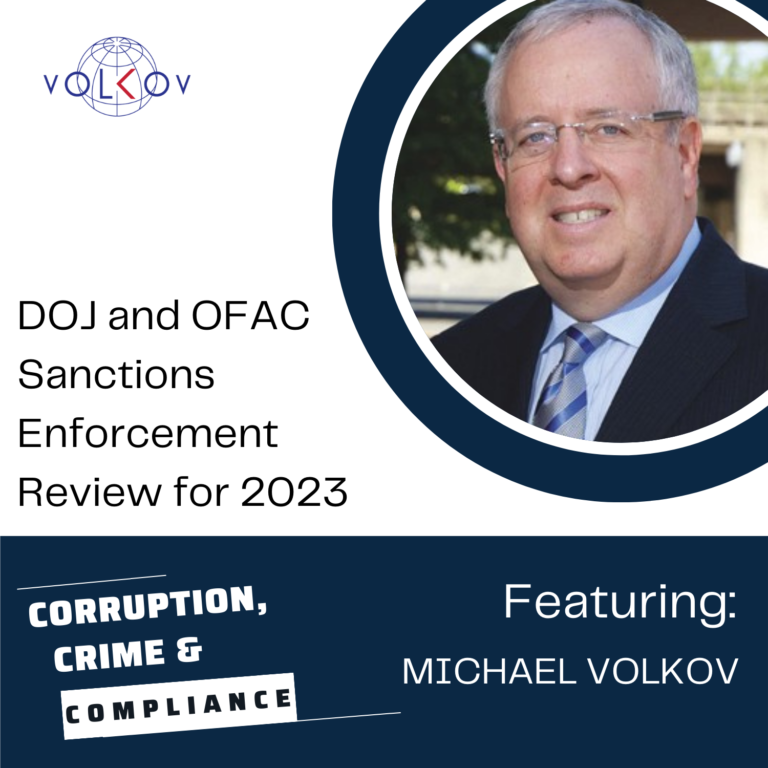The Justice Department and the Office of Foreign Assets Control had a big year in 2023. Criminal and civil enforcement continue to increase. The DOJ has warned corporations that aggressive sanctions enforcement actions are coming. To that end, the DOJ assigned 25 new prosecutors to the National Security Division to execute on its promise. Meanwhile, OFAC had a record year in collecting $1.539 billion in penalties, largely the result of two blockbuster settlements: British American Tobacco and Binance, the cryptocurrency exchange.
- It’s important for companies to ensure they have U.S. expertise to effectively address potential violations of U.S. sanctions laws, as unfamiliarity with these laws can hinder prompt identification and response. Having a strong compliance program based in the United States is a valuable lesson learned from OFAC.
- Global companies are facing unprecedented risks and challenges in today’s economy, leading them to prioritize robust ethics and compliance programs. These programs play a crucial role in promoting positive corporate citizenship and mitigating legal and economic risks.
- In 2023, there was a significant increase in sanctions enforcement by the DOJ and OFAC, with plans for even more aggressive actions in the future. With 17 enforcement cases and $1.5 billion in penalties, it is evident that compliance areas such as third parties and internal controls are of utmost importance.
- Various countries, including Russia, Cuba, and Iran, continue to be the focus of global sanction schemes. While Venezuela’s sanctions were temporarily relaxed, companies must stay vigilant and monitor the upcoming election. The British American Tobacco case, with its $629 million settlement, serves as a model for future enforcement actions.
- The Binance case, involving a $4.3 billion settlement, shed light on criminal violations in the cryptocurrency industry. This highlights the critical importance of compliance in this rapidly evolving sector.
Resources:



